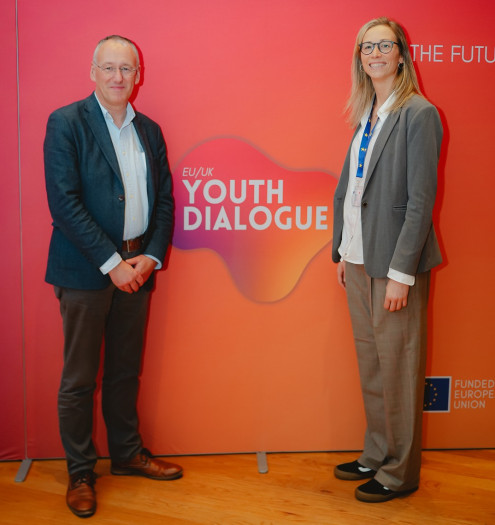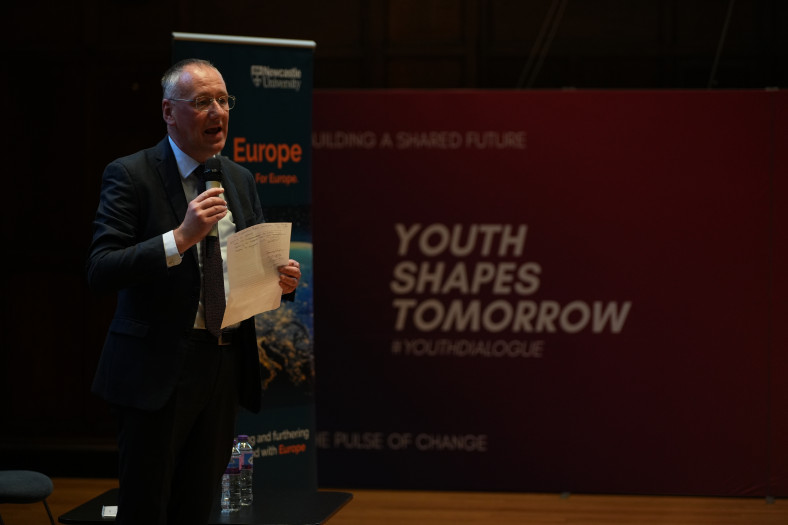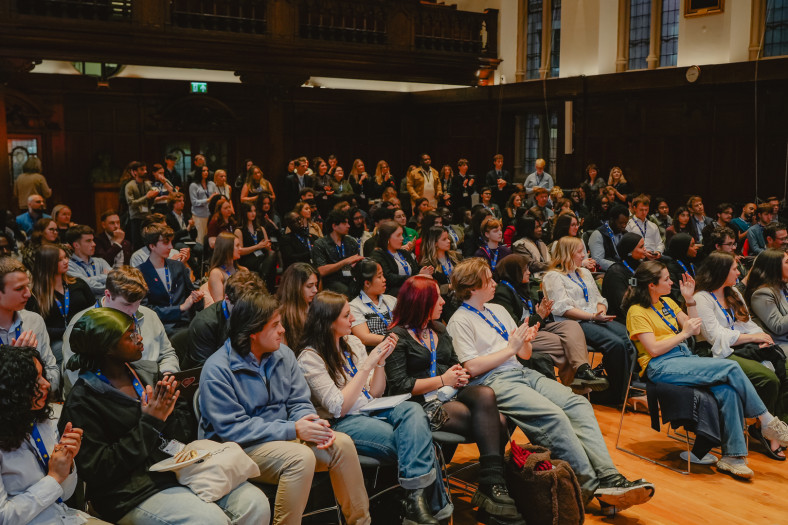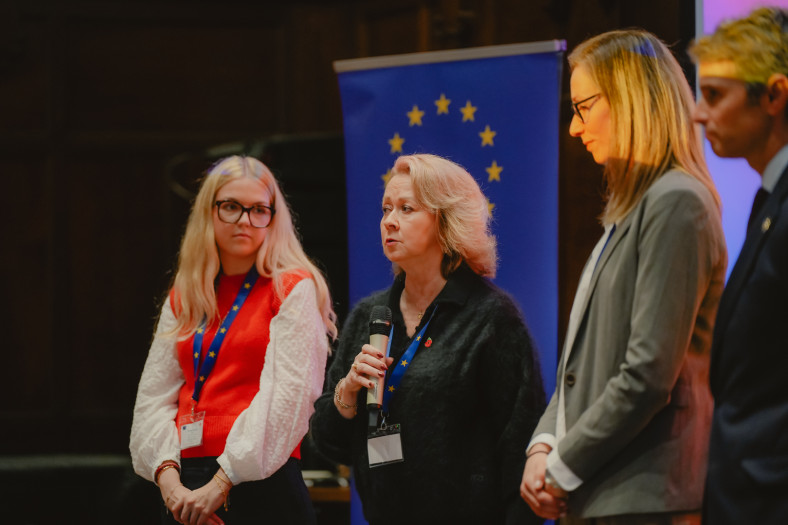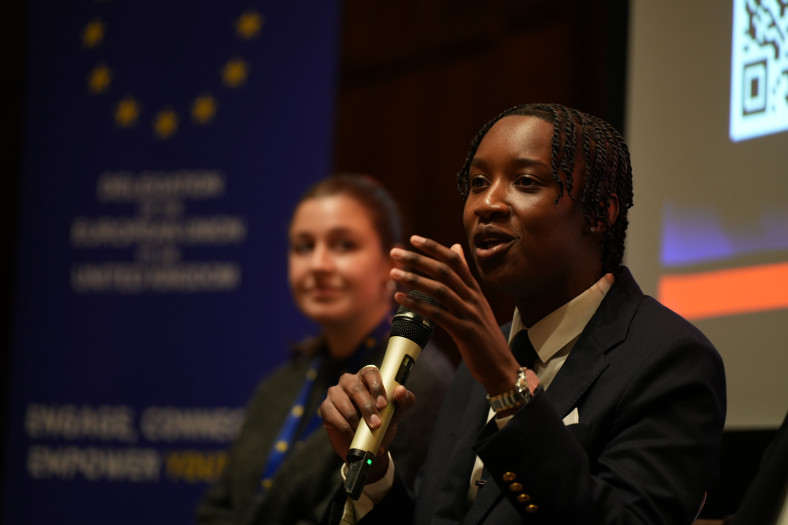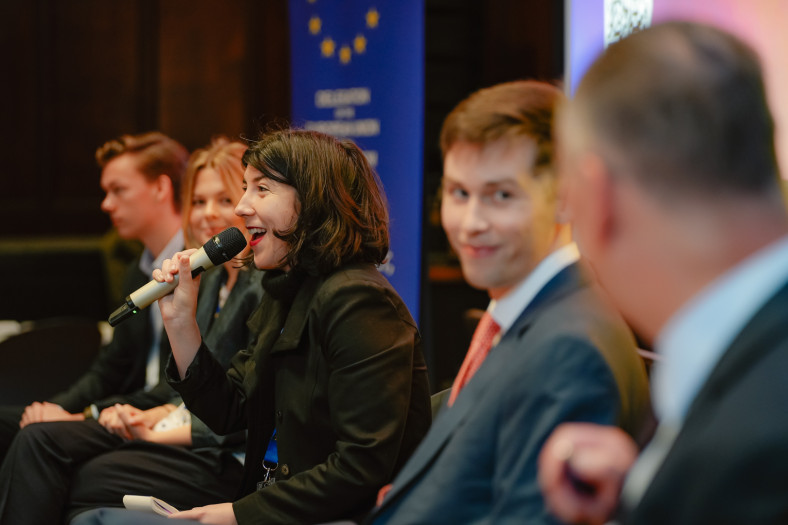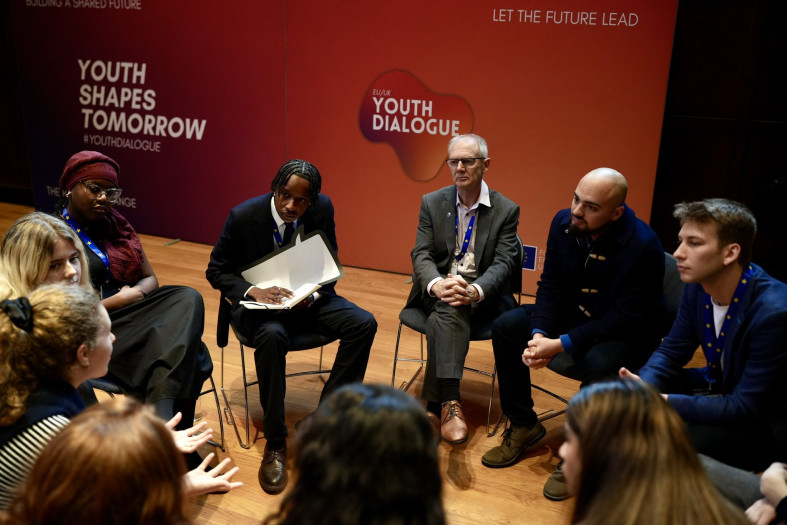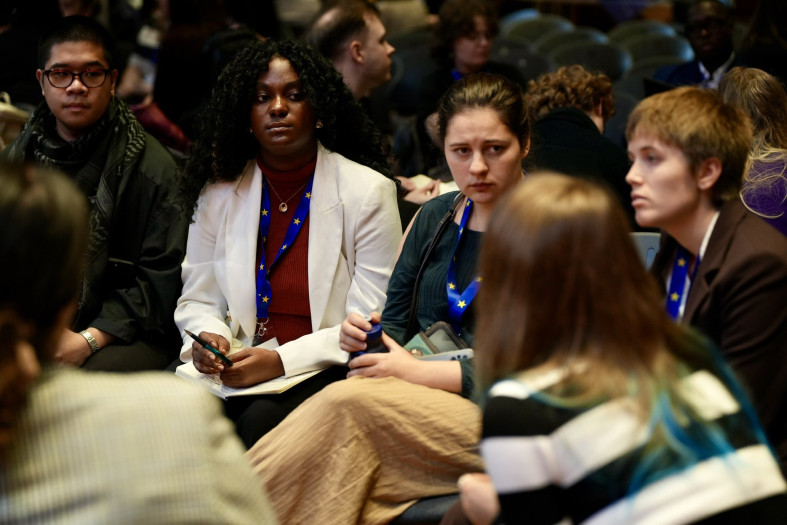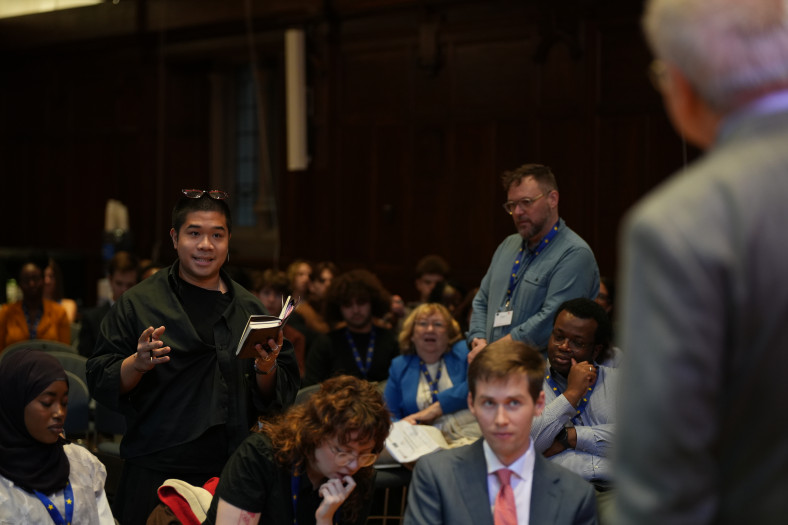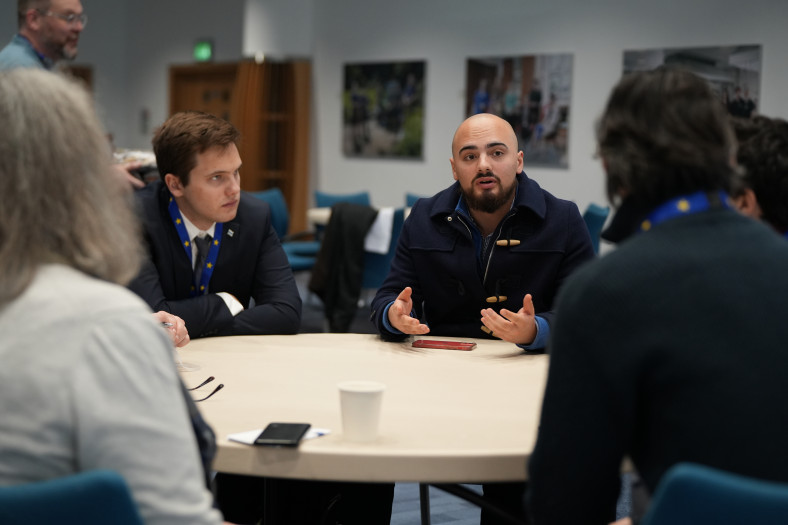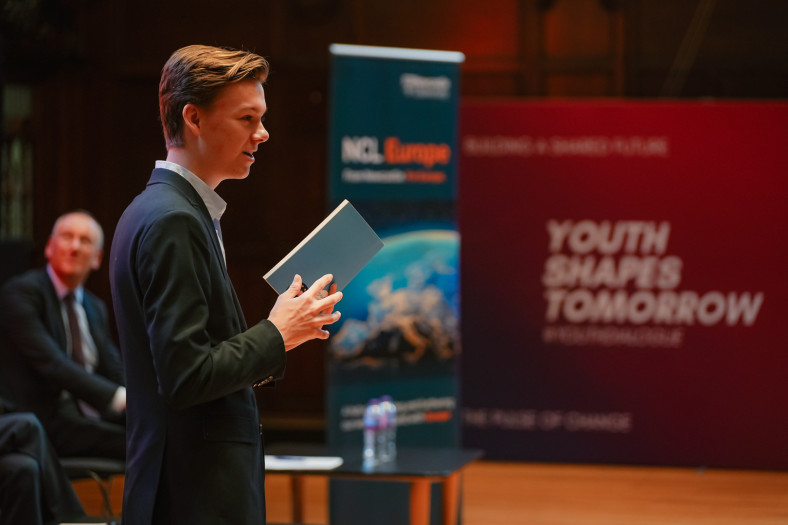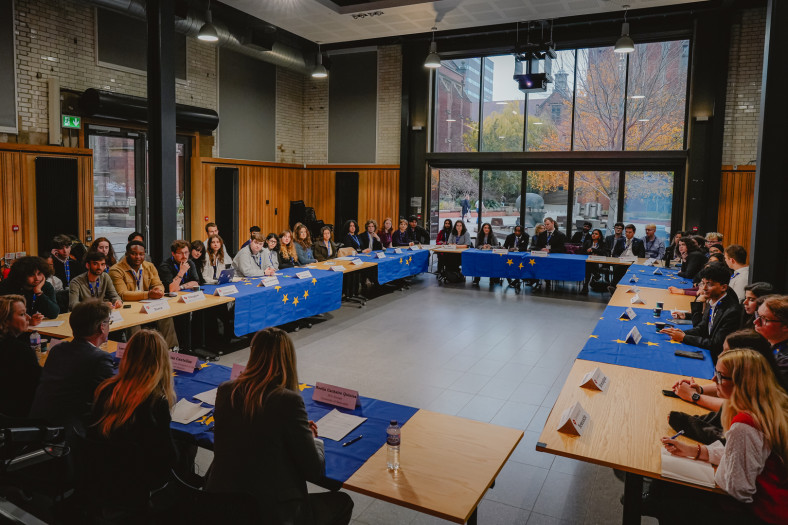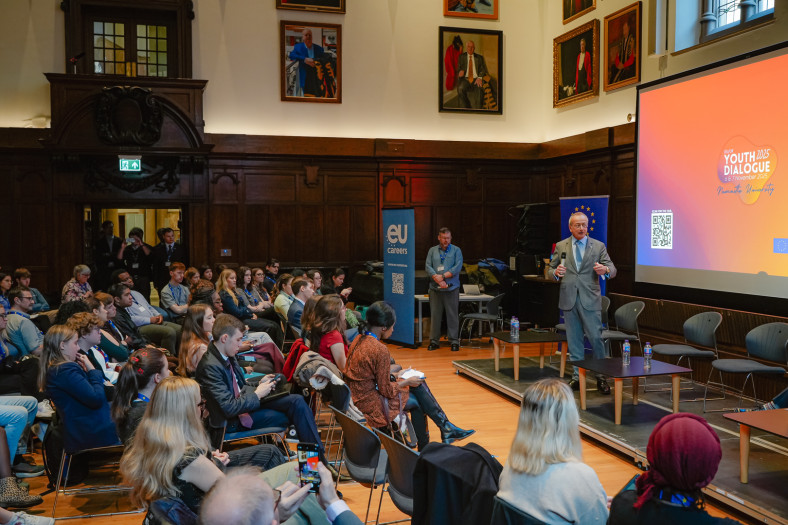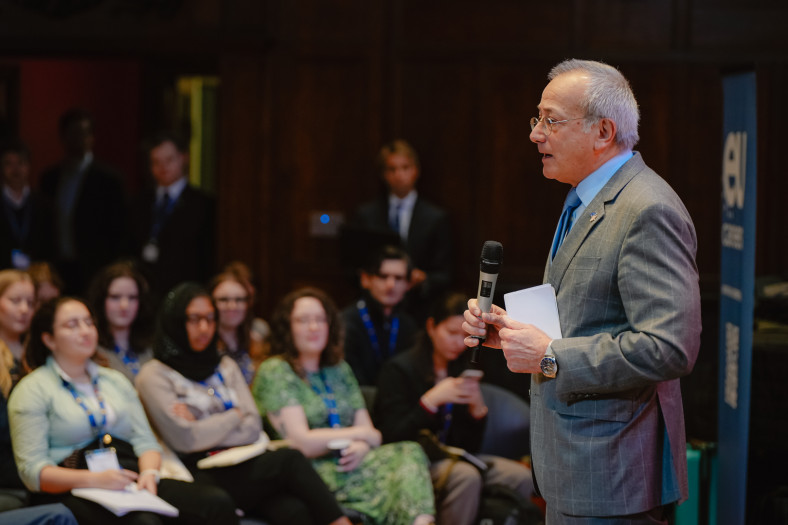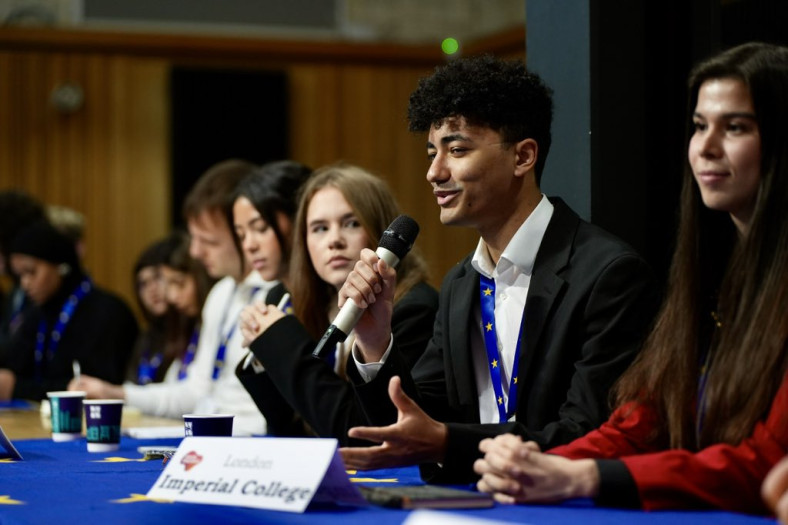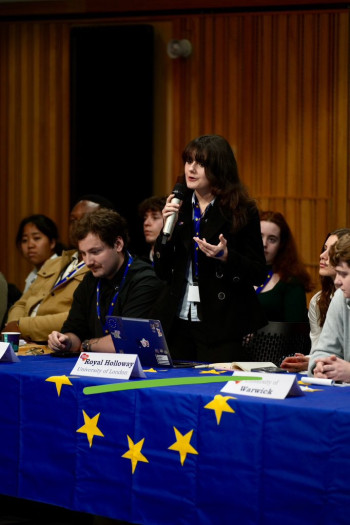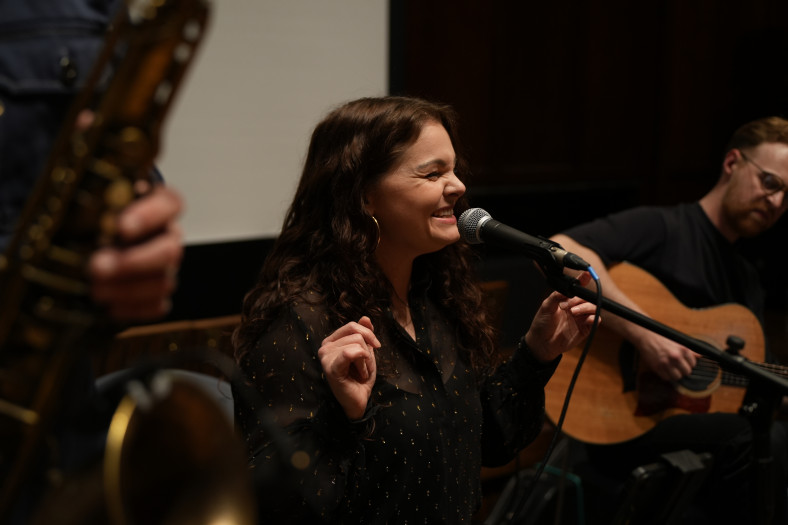Newcastle University hosts the EU-UK Youth Dialogue 2025
"Newcastle was the right place for this. A city of bridges, tunnels and an unpretentious will to work. It stood as a fitting symbol for those who came to build bridges of their own, between youth in the European Union and the United Kingdom and among generations.
“Youth are often far more passive participants in policy than other generations. We as young people have to actively engage and grab hold of our own destinies.” - Alfred, Young European Movement
The EU–UK Youth Dialogue is not a conference of speeches, but a call to purpose. It grows each year not by chance but by necessity. In 2025, it reaffirmed a mission to connect, engage, and empower.
A creative exchange of ideas, catalysed by individual and collective experiences. Young people from every corner of the UK flocked to participate in a two-day dialogue, collating thoughts, initiatives and ideas that represent young voices who seek a better relationship with the EU/UK.
EUD
Nigel Harkness, Deputy Vice-Chancellor, Noelia Cacheiro head of NCl Europe and Ava Garner and all the members of the Newcastle University European Affairs Society made all participants feel at home.
Bringing young leaders together with policy makers and civil society representatives.
EUD
EU Ambassador Pedro Serrano, explained how in the current international context close cooperation between UK and the EU can have a positive impact, and how the EU and the UK are working together to create opportunities for young people.
EUD
Participants had also the opportunity to engage among others with Peter Byne and the European Economic and Social Committee, Leena Maria Linnus, head of the European Parliament Liaison Office in the UK, the EU Youth Delegate to the United Nations, Lars Westra, Irene Oldfather, Vice-Chair of the UK Domestic Advisory Group, Rosa Crawford and the Trade Union Congress, or Alex Stanley from the National Union or Students.
A Network open to everyone
While the impressive King's Hall welcomed eager participants, another room across campus came alive with familiar faces. The European Affairs Societies Network met for its seventh time.
EUD
Uniting more than thirty societies from 30 universities across the country, after the University of Liverpool, Royal Holloway, University of London and Glasgow Caledonian European Affairs Societies joined this ever growing Network. [By the way, if you are interested in launching an European Affairs Societies at your University, please reach out to the EU Delegation.]

EUD
Representatives from the different societies demonstrated how they are reaching out across UK campuses. Language cafés, panels with embassies and cultural exchanges. Some societies were new, others revived. Each was proof that European dialogue in Britain is not a memory, but a living experience.
Day Two - the Dialogue continues.....
EUD
A conversation, not a stage
The following day, the Dialogue opened by the Deputy vice-Chancellor, looked forward to a second day of exchange, debate....
EUD
and also for honesty. Maurizio Cuttin from the British Youth Council set the tone: theirs wasn’t a demand shouted at institutions, but a reminder of what’s been missing, and what remains possible.
EUD
“Young people have been clear for years. Our priorities are regaining access to Erasmus+ and negotiating an ambitious youth experience scheme that delivers for young people across both sides of the Channel.”
Maurizio Cuttin from the British Youth Council
Acting locally and sharing experiences
Later that day, attention turned to the regions themselves, to the communities of participants with a common shared experience. The “Acting Locally” sessions invited participants to consider how cooperation could begin not from Brussels or Westminster, but from within their own cities and regions and between their organisations.
EUD
In group discussions, delegates explored how schools, colleges and universities, youth organisations and local councils could work together to strengthen engagement. They spoke about connecting existing initiatives rather than reinventing them, about making collaboration a habit.
EUD
The South West Group for example reflected on the value of shared effort, how partnerships between universities, community groups and local leaders could turn distance into dialogue. Their conclusion was simple but profound: meaningful change begins when people in the same place start working together.
In the afternoon, members of the EU Delegation’s Youth Advisory Committee, #IWill Ambassadors and UK Youth Strategy Collaborators opened a workshop on youth voices and experiences.
Between sessions
The most valuable conversations often happened off-schedule, around coffee tables, in corridors, at the evening reception. People traded ideas about youth work, cultural identity, Erasmus+ and much more.
What remains
By the end, the speeches and sessions faded into something quieter the sense that this generation is learning to rebuild dialogue and finding ways to have their voices heard from the ground up, and that the UK association to Erasmus+ a Youth Experience Scheme and finding a way to stop the bleeding in the number of EU students in UK campuses are things are part of something bigger: giving young people tools to contribute to strengthen democratic and inclusive societies.
What happened in King’s Hall is just the beginning. Participants headed home already thinking about what to do in the coming weeks and months and how to engage from the local to the international levels to have their voices heard.

